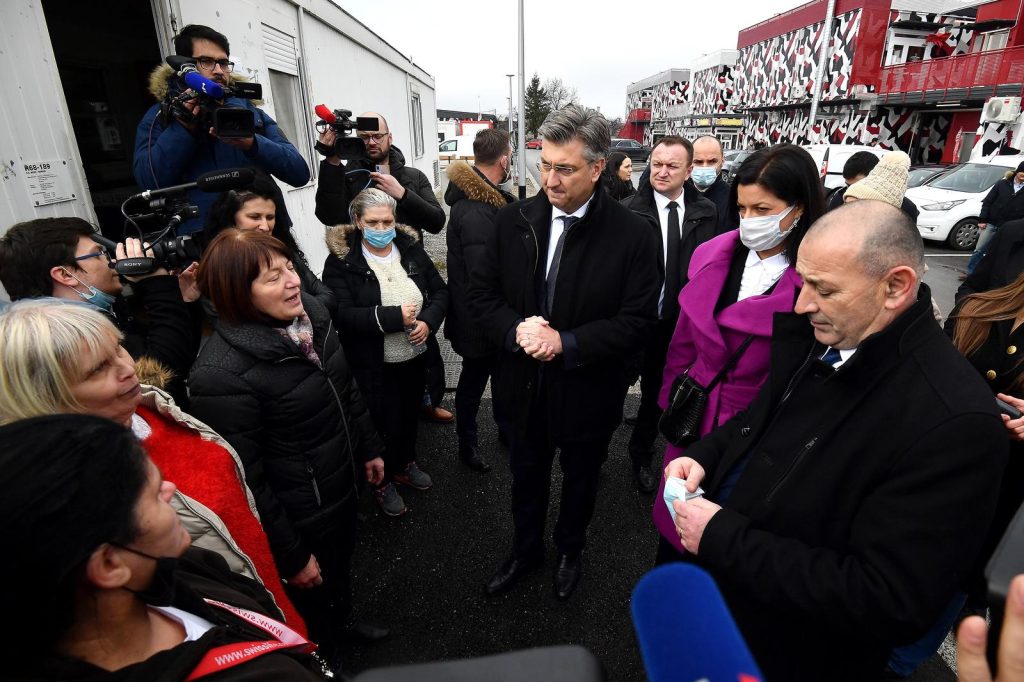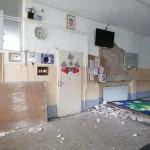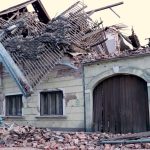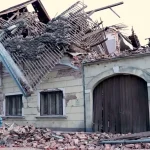“We aim to even more strongly step up the reconstruction process in the period to come, following activities conducted in 2021 – from the provision of housing for the local population, infrastructure measures and the removal of the most heavily damaged buildings… to road and power and water supply grid repairs,” said Medved, who chairs the government’s task force in charge of removing the consequences of the earthquake.
He called on local residents, notably the 5,666 who are still staying in temporary housing units, to cooperate “so that together and with optimism we can embark on the reconstruction process,” and thanked the earthquake victims for understanding.
After in 2021 non-structural reconstruction started, during which more than 1,000 houses were repaired and their occupants, 6,500 of them, returned to their homes, the main priority now are all types of reconstruction, said Medved, recalling that tenders had been published for the construction of apartment buildings.
He called for cooperation with the central state office for reconstruction in Petrinja, expressing confidence citizens had recognised the efforts that were being invested, including organised mobile offices where they could submit their requests for reconstruction and seek any other type of support.
Construction Minister Darko Horvat said an agreement was signed with Sisak-Moslavina County head Ivan Celjak for the construction of a new secondary school in Sisak and a new secondary school in Petrinja, thanking the Gavrilović meat company for donating land for the latter school. We will support those investments with HRK 105 million, he said, adding that the new schools would be built in slightly more than a year.
Milošević: Task force, gov’t aware of need to build better housing stock, infrastructure
Deputy PM Boris Milošević underlined the hard work done by the task force, thanking citizens for solidarity with the earthquake victims as well as the humanitarian organisations and volunteers helping them.
“The government and its task force believe it is not enough to just rebuild what was destroyed, one must build a better housing stock, better roads… ensure better mobile phone signal coverage and everything else that makes life better and more pleasant. All of that needs to be done to motivate people to stay here and those who have left to return,” said Milošević.
The head of the Central State Office for Reconstruction and Housing, Gordan Hanžek, said that project documentation was being made for 6,000 housing units and that a public procurement procedure had been launched for 1,800 housing units, with an estimated value of construction work of HRK 275 million.
Public procurement procedures for work worth half a billion kuna have been launched, he said, adding that next year public procurement procedures would continue to be launched to enable preparations for the construction of 500 family homes to be completed by early March.
“We hope for a response from the construction sector,” he said, noting that 1,200 projects for seismic retrofitting and non-structural reconstruction were in the pipeline, to be completed by the start of the heating season next year.











